
 Flash News
Flash News
Theth action, resident in tears: I built on my land with my life's expenses, the state should not destroy it
Directors targeted! After Fier and Durrës, Rama arrives in Elbasan
Name/Identification of the 23-year-old found dead near Shkopet Lake
IKM action in Theth, residents come out in protest
Reported missing by his father, 23-year-old found dead near Shkopet lake

The euro continues to "roll" in the exchange rate with the Lek even after the November holidays.
According to the official exchange rate of the Bank of Albania, the Euro was exchanged on Thursday at 101.92 ALL, down 0.51 ALL compared to the end of last week.
This is the lowest level of the Euro-Lek exchange rate since August 1. Only in the last 30 days, the Euro-Lek exchange rate has fallen by 3.4%, while compared to the same period a year ago, the fall has reached 12.8%.
The fall of the Euro continues to affect the exchange rate of other main currencies against the Lek.
The American dollar was exchanged on Thursday at 93.32 lek, the lowest level since August 2. In one month, the American currency has depreciated by 6.5%, while compared to the same period a year ago, the drop in the dollar rate has reached 17.2%.
The British pound and the Swiss franc rose slightly today, but remain near four-month lows.
According to exchange rate agents, during the month of November, the fall of the Euro-Lek exchange rate was influenced by an increase in the supply of Euros in the foreign exchange market. It is estimated that a significant part of the increase in the supply of the Euro is related to electricity exports.
During the month of November, the Albanian Electric Power Corporation carried out five electricity sales procedures, during which electricity was sold for a value of approximately 10 million euros. But, according to market sources, other private energy producers have also realized significant foreign exchange sales, which indicates a significant effect of foreign exchange inflows from energy exports.
The increase in the supply of the Euro came at a time when the exchange rate was already characterized by a constant supply of the currency, especially related to tourism, and by a low demand for the European currency. Agents believe that many of the economy's major importers made currency purchases during the summer season to take advantage of the low levels of the Euro-Lek exchange rate. This has caused the demand for currency to be lower in the coming months.
On the other hand, the market seems to continue to suffer from a tightening of the Lek supply. In October, deposits in Lek registered the highest monthly growth of 2023, but, as a whole, the monetary aggregate M2 registered a very small increase. The annual growth of aggregate M2, which represents money supply in Lek, slowed further to 1.9%, remaining close to the lowest levels of the last five years.
The Albanian government's record budget surplus has also played a significant role in curbing the supply of Lek. At the end of the 10th month, the surplus was worth more than 48 billion ALL. Now, an effect however small from the increase in budget expenditures on the exchange rate can be felt only during the month of December, perhaps in its last days, as it happened last year.
The Euro-Lek exchange rate is marking a new and unexpected cycle of decline, which is taking it close to the lowest historical levels, which were recorded in July of this year. The strengthening of the Lek in theory helps to reduce inflationary pressures, but on the other hand it further tests those sectors of the economy with income in foreign currency and expenses in Lek, starting with exporters of goods and services./ Monitor
Latest news


Found dead in Shkopet Lake, 23-year-old has injuries to his throat
2025-07-09 10:41:39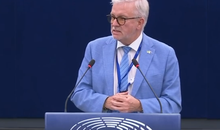


Hoxha: We will have a parliament that will surpass any comedy program!
2025-07-09 10:10:32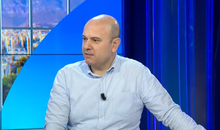

Directors targeted! After Fier and Durrës, Rama arrives in Elbasan
2025-07-09 09:53:57
Name/Identification of the 23-year-old found dead near Shkopet Lake
2025-07-09 09:42:34
IKM action in Theth, residents come out in protest
2025-07-09 09:34:54
Reasons why the EU has not imposed new sanctions against Russia
2025-07-09 09:18:35
DW: Online scams increase human trafficking
2025-07-09 09:01:29

Reported missing by his father, 23-year-old found dead near Shkopet lake
2025-07-09 08:42:13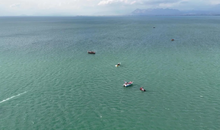

Horoscope, what do the stars have in store for you today?
2025-07-09 08:25:44
Sun and rain, Wednesday with unstable weather
2025-07-09 08:06:58
Posta e mëngjesit/ Me 2 rreshta: Çfarë pati rëndësi dje në Shqipëri
2025-07-09 07:52:02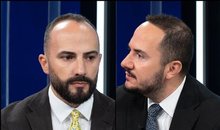

Tabaku: Salianji bore a political cost that no one in Albania has borne
2025-07-08 22:36:15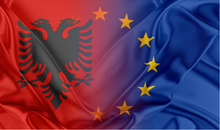


Sekretet për të shijuar verën si një ‘profesionist’
2025-07-08 21:45:06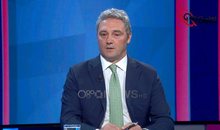


Albania's Waste Crisis: Toxic Smoke and Deep Governance Problems
2025-07-08 21:13:07
Alarming pollution in Fushë-Arrëz, copper factory waste turns the Fan River red
2025-07-08 21:07:14

Poll/ How do you assess the Prime Minister's intervention in local government?
2025-07-08 20:40:01
28 arrested in Italy and Spain for drug trafficking, including an Albanian
2025-07-08 20:24:14
Residents clash with police in Theth: We are on our land
2025-07-08 20:11:41
Death of 27-year-old in Lipjan, Osmani: To be investigated independently!
2025-07-08 20:06:52
Trump promises US will send more weapons to Ukraine
2025-07-08 19:54:25

EU targets health, education, police and cadastre as areas of corruption
2025-07-08 19:23:34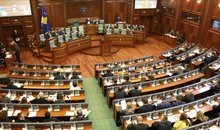


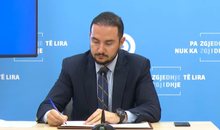

Salianji after his return: I did not oppose for functions, but for vocation
2025-07-08 18:23:15
Will he run in the 2029 elections? Here's how Salianji answers
2025-07-08 18:16:09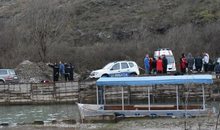
Boat captain drowns after diving into water to save two tourists in Shkodra
2025-07-08 18:05:12
Salianji from the DP headquarters: I brought a drug trafficker to justice
2025-07-08 18:03:26
After Fier, Rama "landes" in Durrës, dismissals expected
2025-07-08 17:53:32
Ervin Salianji arrives at the blue headquarters, welcomed by supporters
2025-07-08 17:45:12
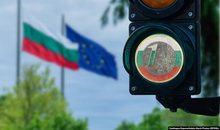
EU approves final steps for Bulgaria's Eurozone membership
2025-07-08 17:43:06

Zhupa after Salianj's release: Inspiration for every opposition member
2025-07-08 17:19:39
Actor David Killick passes away
2025-07-08 17:09:23



Threatened with dismissals, Rama arrives at the Fier municipality
2025-07-08 16:39:19
Extreme temperatures temporarily close Acropolis in Greece
2025-07-08 16:30:34

A plot of cannabis is discovered in Mazha, Kruja
2025-07-08 16:13:48

Republika Srpska allocates additional 22 million euros for lobbying in the US
2025-07-08 15:52:04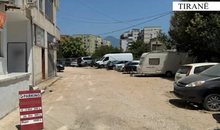

Spices that protect you from mosquitoes!
2025-07-08 15:30:03

Accident on the Vlora-Qeparo axis, one injured
2025-07-08 15:11:52
Berat, 17 years part of UNESCO's world heritage
2025-07-08 15:03:30
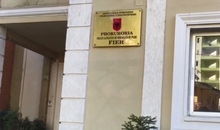

Cost of living increases, inflation rises to 2.4% in June, driven by food
2025-07-08 14:29:54
VIDEO/ Restaurant roof collapses in Italy, one victim and ten injured
2025-07-08 14:18:44
Requested release from cell, Supreme Court leaves Veliaj in prison
2025-07-08 14:07:41
TikTok shutdown/ Austrian media: Rama benefited politically from the app ban
2025-07-08 13:48:25
Acropolis temporarily closed due to heat
2025-07-08 13:31:09

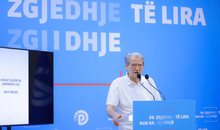

Salianj's release/Berisha: He was politically condemned by Rama and Xhafa!
2025-07-08 13:00:13

Knife attack on Peshkopia Boulevard
2025-07-08 12:44:10


Fier Court decides on the conditional release of Ervin Salianj
2025-07-08 12:15:23
Cost of living increases, inflation rises to 2.4% in June due to food
2025-07-08 12:00:16


Requesting conditional release, Ervin Salianji arrives at the Fier Court
2025-07-08 11:16:36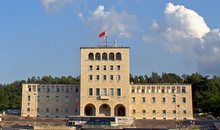
The first phase of university applications begins today
2025-07-08 11:10:52
Fire in Lura, flames endanger the National Park
2025-07-08 10:53:43
Trump warns of 35% tariffs on Serbia and 30% on Bosnia and Herzegovina
2025-07-08 10:37:32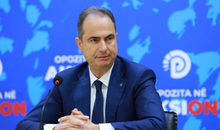
Thethi rooster and the dung cock
2025-07-08 10:24:01

Fire in Dukat endangers Llogara National Park
2025-07-08 10:01:39
International drug search: 36-year-old arrested in Durrës (NAME)
2025-07-08 09:50:48
Thethi, tourists "criticize" modern trend
2025-07-08 09:39:54
Fire on Mount Dukat still active, Llogara National Park at risk
2025-07-08 09:28:12
Veliaj's appeal to be heard today in the High Court
2025-07-08 09:16:02
"Bad sign for democracy"/ Parliament neglects reporting by institutions
2025-07-08 09:04:56
Today's hearing at the Fier Court, Salianji requests conditional release
2025-07-08 08:56:39


Horoscope, what do the stars have in store for you today?
2025-07-08 08:16:19
Weather forecast/ How temperatures will vary throughout the day
2025-07-08 08:02:37
